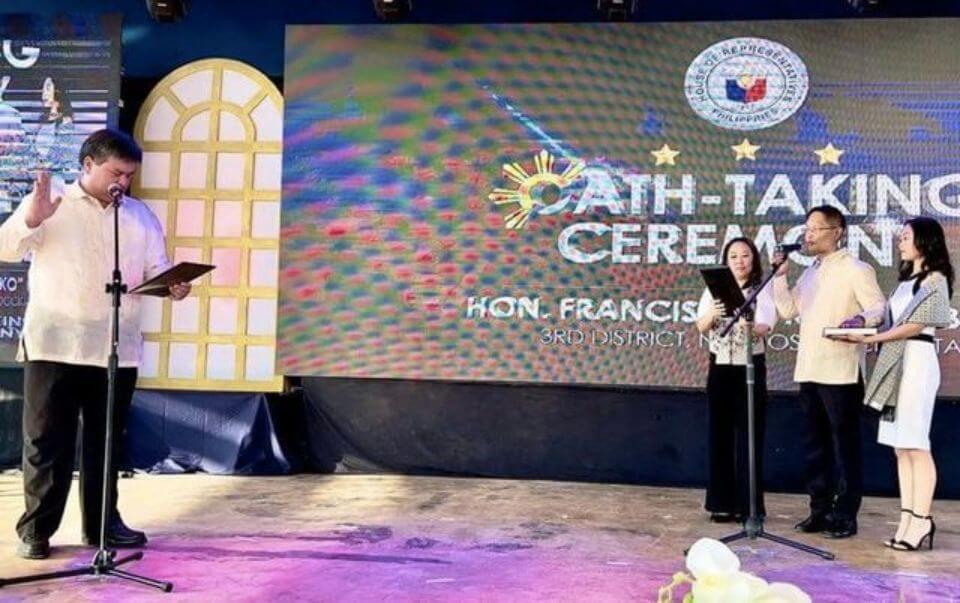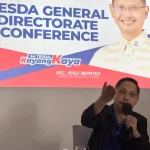Kiko outlines moves to adopt to pandemic-triggered changes

By Carla P. Gomez

Rep. Francisco “Kiko” Benitez (Neg. Occ., 3rd District) said several of his bills, including one that will expand the capacity of the Teresita L. Jalandoni Provincial Hospital in Silay City from 100 to 300 beds, are awaiting the signature of President Rodrigo Duterte to become laws.
If the president does not veto the bills they could just lapse into law, he added.
Benitez, who celebrated his birthday Saturday took his oath before Silay Mayor Mark Golez at the Magikland Activity Center in Silay City.
Silay vice mayor-elect Thomas Maynard Ledesma and councilors Ryan Gamboa, Antonio Duca Jr., Demetria Aplaon, Lyndon Bernardo, Ramon Celebre and Andrew John Penuela also took their oaths before Benitez.
Benitez, in his speech, said the COVID-19 pandemic had highlighted the need to catch up and come to terms with transformations happening around the world.
“It has become more urgent that while we still need to construct new roads, we also need to enhance our local health system capacity to address disease outbreaks, and build new telco towers and install fiber optic cables to connect schools and communities to the Internet to enable distance learning and remote work,” he said.
That is why he worked on House Bill No. 10463 that will increase the bed capacity of the provincial hospital, and is mobilizing resources to build or improve more barangay health centers, he said.
“It has also become essential to provide not only dole-outs but opportunities to our citizens to build sustainable livelihood or skills so they can survive economic shocks and compete in a changing job market,” he also said, citing the conduct of more skills training and additional capitalization to grow micro-enterprises.
“We need greater investments and meaningful reforms to ensure inclusive, resilient and sustainable development,” he said.
Benitez said he has also filed several bills in Congress introducing sustainable solutions that leverage science, innovation and creativity to enhance the capability of individuals, households, enterprises and communities to adapt to disruptions.
“These interventions are crucial to harness the opportunities that the Fourth Industrial Revolution has created. Advances in science and technology are radically transforming a wide range of human activities with deep implications in value creation, consumption and labor,” Benitez said.
Digital technologies are also enabling new forms of artistic and creative expression, and promoting cultural heritage, linking artists, artisans and creative entrepreneurs to a wider audience and market, he said.
That is why he has championed bills that promote heritage tourism and creative industries, Benitez said.
Benitez said he also pushed for bills that will protect natural wealth.
“The increasing demand for raw materials to supply the needs of a growing population has intensified exploitation and competition for finite resources such as land and water. The result: the depletion of our natural resources and the destruction of habitats and ecosystems,” he said.
His office also co-organized with the Provincial Government the Negros Water Summit, he said.
“Water is a vital resource – and we need to think of long-term solutions to ensure water security in Negros Occidental,” Benitez said.
Food security is another emerging issue that needs to be addressed, he said that is why he filed House Bill No. 3412 that mandates the development of family farms, community gardens and food forests in urban areas.
Benitez said he has also mobilized P2.8 billion for flood control projects in the 3rd District.*






